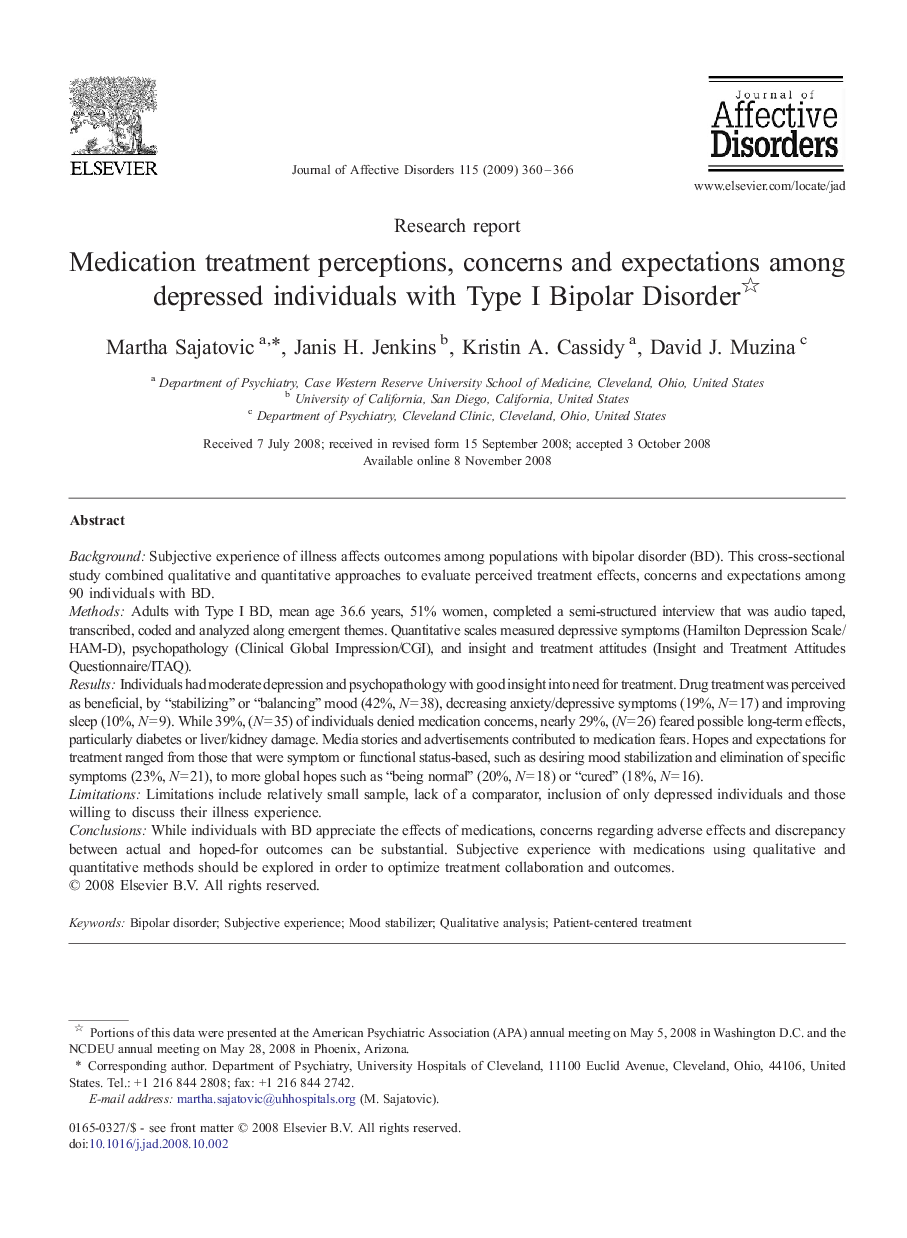| کد مقاله | کد نشریه | سال انتشار | مقاله انگلیسی | نسخه تمام متن |
|---|---|---|---|---|
| 4187151 | 1277620 | 2009 | 7 صفحه PDF | دانلود رایگان |

BackgroundSubjective experience of illness affects outcomes among populations with bipolar disorder (BD). This cross-sectional study combined qualitative and quantitative approaches to evaluate perceived treatment effects, concerns and expectations among 90 individuals with BD.MethodsAdults with Type I BD, mean age 36.6 years, 51% women, completed a semi-structured interview that was audio taped, transcribed, coded and analyzed along emergent themes. Quantitative scales measured depressive symptoms (Hamilton Depression Scale/HAM-D), psychopathology (Clinical Global Impression/CGI), and insight and treatment attitudes (Insight and Treatment Attitudes Questionnaire/ITAQ).ResultsIndividuals had moderate depression and psychopathology with good insight into need for treatment. Drug treatment was perceived as beneficial, by “stabilizing” or “balancing” mood (42%, N = 38), decreasing anxiety/depressive symptoms (19%, N = 17) and improving sleep (10%, N = 9). While 39%, (N = 35) of individuals denied medication concerns, nearly 29%, (N = 26) feared possible long-term effects, particularly diabetes or liver/kidney damage. Media stories and advertisements contributed to medication fears. Hopes and expectations for treatment ranged from those that were symptom or functional status-based, such as desiring mood stabilization and elimination of specific symptoms (23%, N = 21), to more global hopes such as “being normal” (20%, N = 18) or “cured” (18%, N = 16).LimitationsLimitations include relatively small sample, lack of a comparator, inclusion of only depressed individuals and those willing to discuss their illness experience.ConclusionsWhile individuals with BD appreciate the effects of medications, concerns regarding adverse effects and discrepancy between actual and hoped-for outcomes can be substantial. Subjective experience with medications using qualitative and quantitative methods should be explored in order to optimize treatment collaboration and outcomes.
Journal: Journal of Affective Disorders - Volume 115, Issue 3, June 2009, Pages 360–366